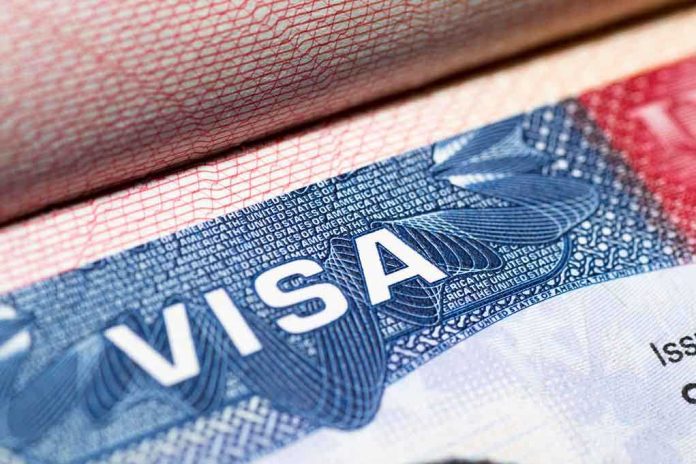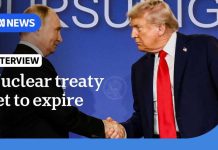
Trump’s unprecedented decision to admit 600,000 Chinese students into the U.S. has sparked a fierce backlash from his “America First” base, concerned about national security and ideological consistency.
Story Highlights
- Trump administration reverses visa policy, allowing 600,000 Chinese students entry.
- Secretary Howard Lutnick defends the move, citing economic necessity for universities.
- Policy shift faces backlash from Trump’s base due to perceived national security risks.
- The decision highlights ongoing tensions between economic pragmatism and nationalist policies.
Economic Rationale Behind the Policy Shift
President Donald Trump announced a significant policy reversal by allowing 600,000 Chinese students to study in the United States. The decision was defended by U.S. Secretary of Commerce Howard Lutnick, who emphasized the economic necessity of such a move. Lutnick argued that without these students, the bottom 15% of American universities could face closure due to their heavy reliance on international tuition revenues.
This policy shift comes against a backdrop of financial struggles faced by U.S. universities post-pandemic. Many institutions, especially lower-tier ones, depend on international students to stabilize their budgets and avoid closures. The administration’s decision aims to prevent a potential collapse of these institutions, which could severely impact U.S. higher education.
Political and Ideological Backlash
Despite the economic rationale, the decision has ignited a strong backlash from Trump’s “America First” supporters. Critics argue that the move contradicts previous hardline stances on Chinese student visas, which were implemented due to national security concerns and espionage fears in sensitive academic fields, particularly STEM. This reversal has been perceived by many as a betrayal of the nationalist policies that were a hallmark of Trump’s previous term.
Media figures like Fox News host Laura Ingraham have voiced concerns that the policy undermines national security and ideological foundations. The tension between economic needs and ideological purity continues to be a point of contention within Trump’s base, revealing deep divisions over the direction of U.S. policy towards China.
Implications for U.S.-China Relations and Future Policies
The announcement coincides with ongoing trade negotiations and a fragile truce between the U.S. and China. Allowing an influx of Chinese students could serve as a diplomatic gesture, potentially stabilizing bilateral relations temporarily. However, it also raises questions about the long-term implications for national security and the integrity of the “America First” doctrine.
As the policy is yet to be implemented, details on visa processing and security measures remain pending. The administration must balance economic benefits with rigorous vetting processes to mitigate espionage risks. The decision could set a precedent for future immigration and educational policies, influencing the U.S.’s stance in the global educational landscape.



